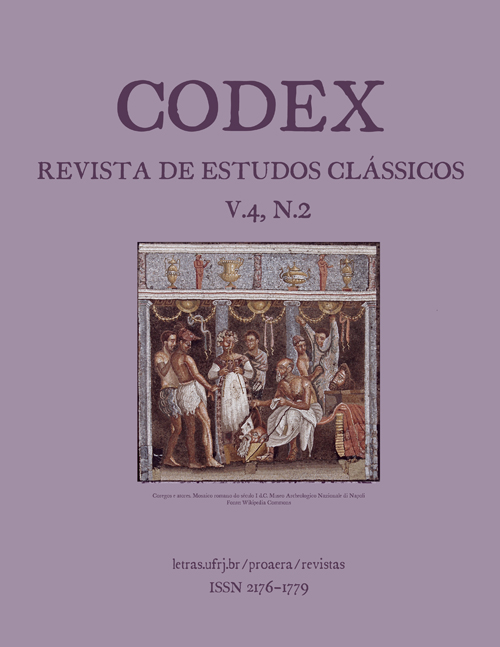Satyr Drama as the theatrical reverse of the Tragedy
DOI:
https://doi.org/10.25187/codex.v4i2.5318Keywords:
Satyr Drama, Greek Tragedy, language, ópsis, gestureAbstract
This paper thinks the Satyr Drama as the theatrical reverse of the Tragedy. As a theatrical form inserted in the “Tragic Festivity”, the function of the Satyr Drama cannot be analyzed separately from the Tragedy and it is proposed that the contrast with this major genre is a correct mode of analysis, given the scarcity of available sources. Drawing from the analysis of the humorous implications of language, ópsis and gesture, this paper proposes that the Satyr Drama operates fundamentally on the emotions provoked by the tragedies that, in classical times, preceded it in the performance. This way, it is affirmed that, by distancing the emotional power of tragic emotions, the satirographer can offer a space of laughable relief in which some tragic topics are represented from a humorous perspective. Finally, the Satyr Drama shows the fictional character of Tragedy, a basic operation to promote a distention that, without denying the emotional effects of Tragedy, admits the possibility of other emotions (such as laughter) in the treatment of myth and epic heroes present in the plot of tragedies.
Downloads
Published
How to Cite
Issue
Section
License
This work is licensed under a Creative Commons Attribution-NonCommercial 4.0 International License.










